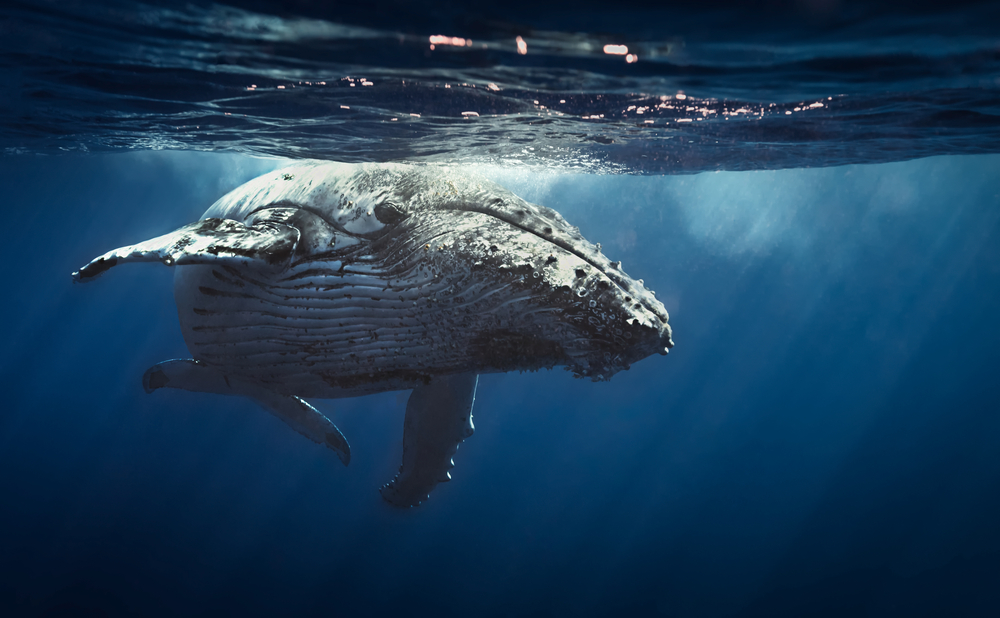
The U.S. Navy has agreed to restrict its use of sonar and explosives off the coasts of Southern California and Hawaii in a landmark settlement that will protect whales and dolphins from the harmful effects of ocean noise.
A federal court ruled that military training and testing activities, such as mid-frequency active sonar and underwater detonations, cause illegal harm to more than 60 separate populations of whales, dolphins, seals, and sea lions in the waters.
Two separate cases were brought against the U.S. Navy by conservation groups, including Greenpeace and environmental legal agency Earthjustice, who have been campaigning for this protection for more than a decade.
Research has shown that sonar damages marine mammals’ ability to hear and communicate, causing widespread disruption to feeding, mating and migration, and even leading to stranding, injury and death.
‘If a whale or dolphin can’t hear, it can’t survive,’ said David Henkin, an attorney for Earthjustice. ‘We challenged the Navy’s plan because it would have unnecessarily harmed whales, dolphins, and endangered marine mammals, with the Navy itself estimating that more than 2,000 animals would be killed or permanently injured. By agreeing to this settlement, the Navy acknowledges that it doesn’t need to train in every square inch of the ocean and that it can take reasonable steps to reduce the deadly toll of its activities.’
Under the new restrictions, dangerous sonar and explosives will be prohibited within key reproductive areas, feeding sites and migratory corridors, while their use will be strictly controlled within less sensitive areas. In addition, ships must use “extreme caution” and travel at a safe speed to reduce the risk of collisions between vessels and cetaceans.
‘We can protect our fleet and safeguard our whales,’ added Rhea Suh, President of the Natural Resources Defense Council, whose lawyers challenged the Navy’s activities in Southern California and Hawaii on behalf of various conservation groups. ‘This settlement shows the way to do both, ensuring the security of U.S. Navy operations while reducing the mortal hazard to some of the most majestic creatures on Earth. Our Navy will be the better for this, and so will the oceans our sailors defend.’
The waters off Southern California and around the Hawaiian islands are a globally important oasis for numerous species of vulnerable marine mammal, such as blue whales, orcas, beaked whales, humpback whales, spinner dolphins and Hawaiian monk seals.
